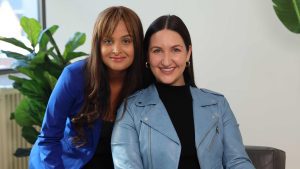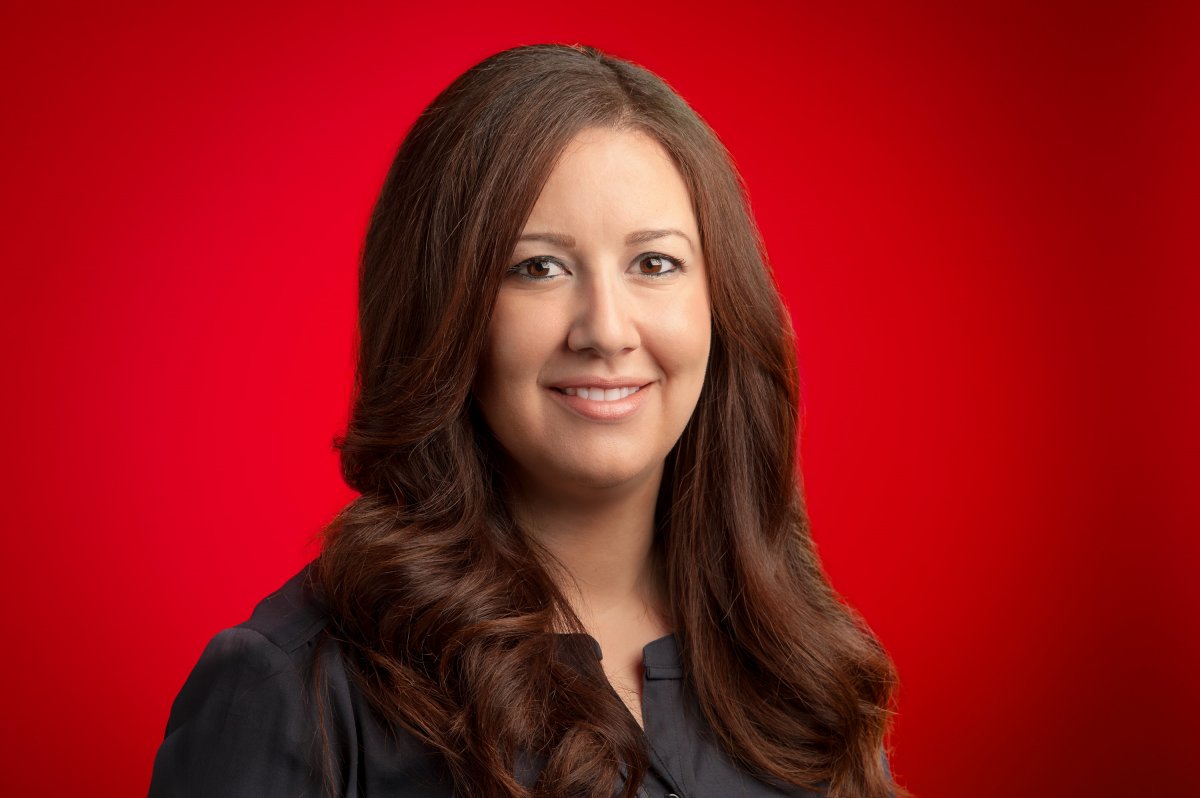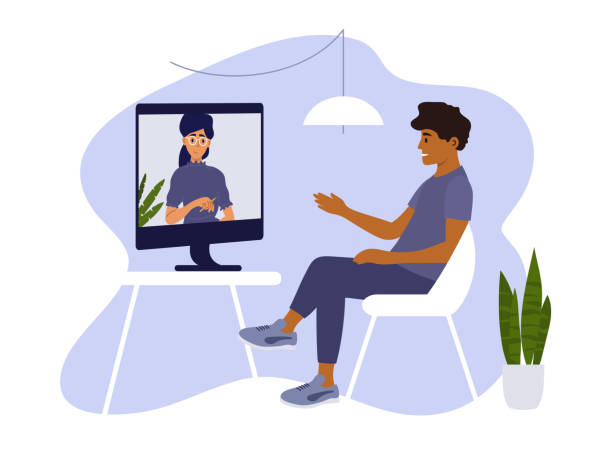Never before have we as a society had access to information at the breadth and speed that we have today thanks to advances in technology. And yet, despite this incredible progress, it feels like we are still fighting for the legitimacy of science. Misinformation (and the spread of it,) however, is not a new phenomenon. One could even argue that it has existed for as long as the study of science, itself. In a time where research and data are constantly being challenged and questioned, Greg Brown and Mitchell Moffit (the duo behind the massive social media force that is AsapSCIENCE) are on a mission to “make science make sense.”
Brown and Moffit’s origin story starts at the University of Guelph, where the two met and cut their teeth as biological science majors pursuing a career in the field. Fast-forward eight-and-a-half years and the enterprising (not to mention hilarious) duo has built a social media empire of over nine million followers who tune in daily to learn about a wide range of topics that intersect between art, science, and pop culture. They’ve released a New York Times best-selling book, presented at the United Nations, worked with some of the community’s biggest luminaries (Bill Nye, Neil DeGrasse Tyson, Emma Thompson, Lilly Singh) and even spearheaded their own billboard campaign with TikTok (called “It Starts on TikTok”) celebrating Canadian content creators who are making an impact—milestones collectively built on the premise of educating and debunking our biggest science conundrums.
Featured in our two-part November digital cover series featuring Canadian TikTok creators, we sat down with AsapSCIENCE as various parts of Canada enter lockdown to talk about how they started their channel, what we can do to curb conspiracy theories, and how to think more like a scientist. Read below or listen to our podcast episode with the duo.
Bay Street Bull: It’s so great to be chatting! You’re the duo behind AsapSCIENCE. How long have you been doing this for now?
AsapSCIENCE: We’re coming up to nine years in June [2021] and a year after that, it’s a decade!
Bay Street Bull: Ten years is a big milestone. A lot can happen in a decade.
AsapSCIENCE: We’ve been talking a lot about being on YouTube for 10 years. It feels like a long time and the platform has changed so much. [Our platform] has been really helpful for us because it is evergreen and something that people are always interested in. The only reason we’ve been able to still be on the platform for this long is because we have a mission statement that is pretty ubiquitous.
Bay Street Bull: You both met at university?
AsapSCIENCE: Yeah, we met studying biological sciences and that’s when our relationship began. We didn’t start our YouTube channel until we had left university, though. One of us was in teacher’s college (Greg) and the other was working in a lab.
Bay Street Bull: Unpacking science topics is not an easy task, but you’re constantly on a learning journey. Every day must be different for you.
AsapSCIENCE: It’s so interesting. We’ve managed to create a career where we actually don’t spend that much time in a lab. A lot of our way of communicating science involves having other smart people do the work in the lab finding information, and then we get to synthesize it for the masses. Every day is different and we get to follow what we’re interested in, and then deliver it to people. We decide what we’re interested in on that day, which can be a huge challenge because we’re like, what the hell? What [are we] interested in today? There’s lots of reading [involved,] copious amounts of reading.
Bay Street Bull: We’re on the topic of science, which is an interesting conversation to have in 2020. We live in a time where a society that has benefited from all the advancements of technology and science also vehemently denies the validity of it all. As a platform built on educating around facts and science, what has that experience of navigating this culture been like?
AsapSCIENCE: It has been very acute and visceral this year as we go through a public health crisis and global pandemic. Prior to it, we were well aware of those issues and trying to focus our channel on talking about the climate crisis. About two years ago, we were almost going to fully focus our channel on that and make a big pivot, so we [understood] what it feels like to have people deny science and have it become politicized. When this pandemic happened, a lot of people were shocked about the reaction and how it got so politicized but it wasn’t really that shocking to us at all.
There’s this idea that science isn’t political. A lot of people in the science world think it’s not political, that it’s the truth. But politics is what funds science. Politics is really important to science. What happens is the innate politicization of it creates this polarization. As politics becomes more polarized, inevitably so, too, does science. It’s depressing but it’s not that surprising when you think about how they function.
It is a really fascinating part of our time. When we look back on history, we’re going to look at the response that people had right now to science and to this world that we’ve been thrust into where science is going to be what saves our lives while simultaneously being something that people think is hurting our lives.


Bay Street Bull: Misinformation (and the culture of misinformation) is not new. As it relates to the moment of time that we’re in now, do you think we’re experiencing an ‘infodemic?’
AsapSCIENCE: Yeah, for sure. It’s this technological era that we live in. If you really zoom out, it comes down to Facebook, Instagram, YouTube—these places that we have made our living on have been thrust into the spotlight where we’re almost digressing on the positive aspects of them and really starting to critically think about what they’re doing. An infodemic is a part of it.
One thing that is always going to be a challenge, and we see it when we make our videos, is that science isn’t sexy. It’s not going to ever give you an answer that’s clear. It’s very nuanced. Every time something exciting happens, it always comes with caveats. The nature of the scientific process is to have a hypothesis and a discussion, and then to end with why your experiment was innately wrong, and how would you make your experiment better? And finally, what can we do to know more? It’s never about having the answers. In fact, the concept of the word ‘fact’ is something that, in many ways, can be debunked as a word because things are always going to change in the future. We might look back at some of the physics we look at now with new mathematics and insight and have a completely new understanding of all these things. So, we’ve always understood that. We’ve really tried to utilize the algorithms and YouTube to give [videos] really catchy titles and make it seem like you’re going to get the answer. But something we pride ourselves on is that we don’t ever, by the end of it, say, “and this is the answer.” It’s usually like, “this study said this, this study said that.” You’re kind of tricking people into understanding the nuance of science while trying to make it work on social media, and in order to do that, you have to make it seem simple.
What’s happened in the world is that people are tired. There’s so much information and they don’t have the capacity. They want the “sexy” answer. They want some quick information and that’s going to be a lot easier to move your neurons if it’s made up, if it’s sexy, and if it’s simple. That’s how you figure out if what you’re being fed isn’t true. If someone is telling you something and it seems too good to be true, that’s when you need to fact check because usually, it’s not necessarily the case.
Bay Street Bull: You must have the naysayers and the trolls. How do you deal with the people that try to discredit the information that you’re presenting or are very cynical about it? Do you try to even change their minds about the topics that you’re covering?
AsapSCIENCE: When it comes to something like climate change denial… let’s just start there. For people who deny that the climate crisis is real, it’s really challenging to change their mind with facts. We have found countless research and know you cannot change their minds with facts, which is obviously very frustrating. In Canada, we find that moving the needle on the climate crisis has been a little bit easier. Our population is smaller, we’re innately more socialist, we understand what it means to allow our governments to regulate us, which is a big part of what is going to need to happen for the climate.
Then we look to places like America, where we get inundated with their culture and their media. We see how messed up it is for them because they have such binary issues. Move over to Europe, it’s a little bit easier. Move to China, it’s a little bit easier. If we’re talking about Canada, Europe, and China, we’re a little bit more hopeful with this concept of allowing the government to regulate us, which is really part of the reason why people deny climate change. They don’t want these “socialist governments” to come in and start regulating things, which innately is what has to happen.
When you watch our videos, we have to tug at people’s heartstrings. Whenever we’ve been like, “This is how you talk to climate change deniers,” we from the get-go say this video is not for climate change deniers. It’s for people who accept that the climate crisis is real, and here are some tactics that are helping you understand how to talk to them, in which case we say, don’t bring up facts. Don’t argue with people because that’s not actually what is going to help.
RELATED: Allbirds CEO Joey Zwillinger on why all corporations should have to measure their carbon
As science communicators, there is an interesting intersection of trolls. There are a lot of trolls that come at us from a homophobic angle. We also really like to dissect science from the perspective of it not being this perfect thing. Essentially science and white supremacy were born at the same time, and they relied on each other in the beginning to flourish. So, we don’t shy away from talking about those things and we get trolled on that. We get trolls from people who love science and think it’s so perfect. It’s funny, we really have strong opinions on things and we really don’t shy away from them. And we really get trolled. We’re not making it easy for us.
Bay Street Bull: So how do we speak to conspiracy theorists and trolls if not with facts?
AsapSCIENCE: When you study people who believe in conspiracy theories, a lot of these people [adopt a] conservative ideology and approach the world through a fear-based worldview. And with that comes wanting simple answers, wanting the fact that your life might be out of control to be blamed on the fact that there’s this bigger entity that’s against you. That is really captivating. For a lot of the people who believe these things, it might mean that their life feels a little out of control. There’s a lot of vulnerability there and a lot of things that you can’t fix with facts or science. It’s so easy to get angry at people who aren’t wearing a mask because they’re putting other people in danger, and a lot of them can represent something that you don’t believe in, but it really takes patience and emotional capacity to empathize with the fact that these people are probably struggling. Yelling at them isn’t going to work. But that’s so much easier said than done. It’s also why in places like Canada and Europe, where we have more acceptance of our government and we pay taxes and see what our healthcare system does for us positively, that we are able to have societies that are less likely to fall into the issues that we are seeing in places like America, where it’s a lot harder for them to have faith and trust in their government.


Bay Street Bull: There’s this breakdown in trust that we’re having right now. How can we work towards building trust with people and sustain it, especially those who are critical of government institutions and health authorities that they see as being indecisive?
AsapSCIENCE: It’s really hard. Something like the climate crisis was so hard to explain to people intellectually. It’s going to happen, it already is, and it is so scary. The pandemic is like a shock to people’s systems [and making them realize that] if we don’t listen to scientists, if we don’t put faith in government institutions to do things like make and distribute a vaccine, we’re screwed.
When this ends and when we get our vaccines, the hope is that we get to come back to the world and go, Okay, so what’s next? When we get to have lived this out, there might be this reckoning moment. We are all anxious right now, but there will be a net positive and the needle will turn. But there needs to be clear outlines from the government. [In Canada,] we did a really good job at the beginning, but it’s just a challenging time right now as it drags on longer and longer. But these vaccines are close!
Bay Street Bull: How do we know who to trust? Perhaps more importantly, how do we know who not to trust? What are the red flags when it comes to sourcing credible information and data?
AsapSCIENCE: For AsapSCIENCE, one thing across the board from the get-go of our career doing science communication has just been that if you ever see something that seems too good to be true, or seems too simple to be true, it likely isn’t. We have an interesting example. Recently, we made a video on skincare where we were trying to do that catchy title thing on our channel. We were like, “The only anti-aging cream that works” because that’s sort of what you have to title YouTube videos in order to get people to click on them. And then we got a response from this really intelligent dermatologist who was just like, you can’t say that. We were saying, the only anti-aging cream that works in regards to wrinkles, but actually anti-aging means so much more than that depending on your racial background. It doesn’t necessarily mean wrinkles. It could be the changing of the pigmentation of your skin.
RELATED: How BlueDot founder Dr. Kamran Khan used artificial intelligence to discover COVID-19
When we tried to say something specific to make a viral video, the science came back and was like, no to that. It’s more nuanced than that. So, that’s a great tangible example of if you ever hear something that is a bold claim, that’s when you have a red flag. You always need to be aware of any sort of clickbaity exceptionalist title when it comes to science.
Bay Street Bull: Sources of misinformation often come from various places, including social media, pop culture, celebrities, influencers. As a platform that operates in a lot of these realms, as educators with a public voice, how do you define influence in this context?
AsapSCIENCE: A lot of the issues are stemming from outliers. We don’t spend that much time thinking about it. There are these people on YouTube who are homophobic, creating conspiracy theories, and really giving the information they want to hear, even though it’s not true. There’s always going to be a market for that. It’s just so much easier now because we have these platforms that aren’t key holders, which we thought was a good thing. And now we’re like, Oh, I guess it’s also going to be a bad thing. We started out on YouTube ignorant to the negative aspects of what it would mean to have this a free open platform. YouTube being an open platform is the reason we were able to make our videos and that’s their logline—anyone can do it. For every [success story,] there’s also the other side of it.
Bay Street Bull: Ultimately, what are the core tenets of thinking critically and being science literate? How can we all think like a scientist and not a conspiracy theorist?
AsapSCIENCE: Observing the world through science is actually quite spiritual. The most complicated questions in physics [are trying to be answered.] It’s how we create a worldview of being happy and relaxed in this chaotic world. One thing that science doesn’t get enough [credit for] is that it can be a place of solace because contrary to that, a lot of science really is about regulation. [You can] find the beauty and solace that science brings while simultaneously learning how to make that critical thinking aspect of life fun.
We live in a time where there’s so much information. We can understand the nuance of things if we put a little bit more time into learning about what’s going on right now. The more information you read, the more complex things become and the more interesting it is. If you don’t spend the time to be critical and look into them, then they’re just going to become surface value things that you’re not going to know about.
Bay Street Bull: At the end of the day, what is the bigger picture for you?
AsapSCIENCE: We had an answer to that question five years ago. It’d be like, “We’re trying to get as many people as possible, interested in science.” That was our answer, which is definitely what we did. And we feel so grateful to have executed a dream and a goal. In the last three years, the answer to this question is very much in flux for a variety of reasons. We want to help people understand the current public health crisis. We want people to understand the climate crisis. We also want people to understand how science needs to be criticized for having a lot of white supremacy baked into it. We also do want to make as many people as possible critical thinkers and interested in science. It’s a mix of those things.
This interview has been edited and condensed for clarity. Listen to the full conversation in our podcast episode with AsapSCIENCE.













